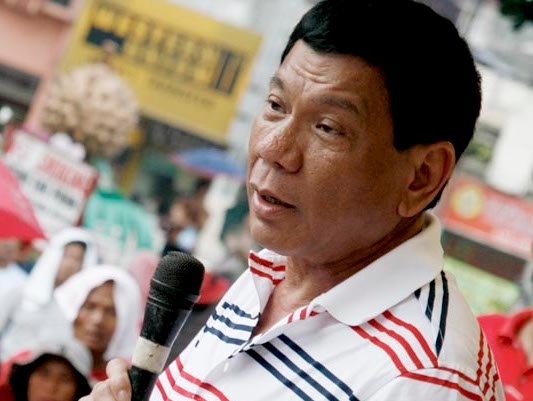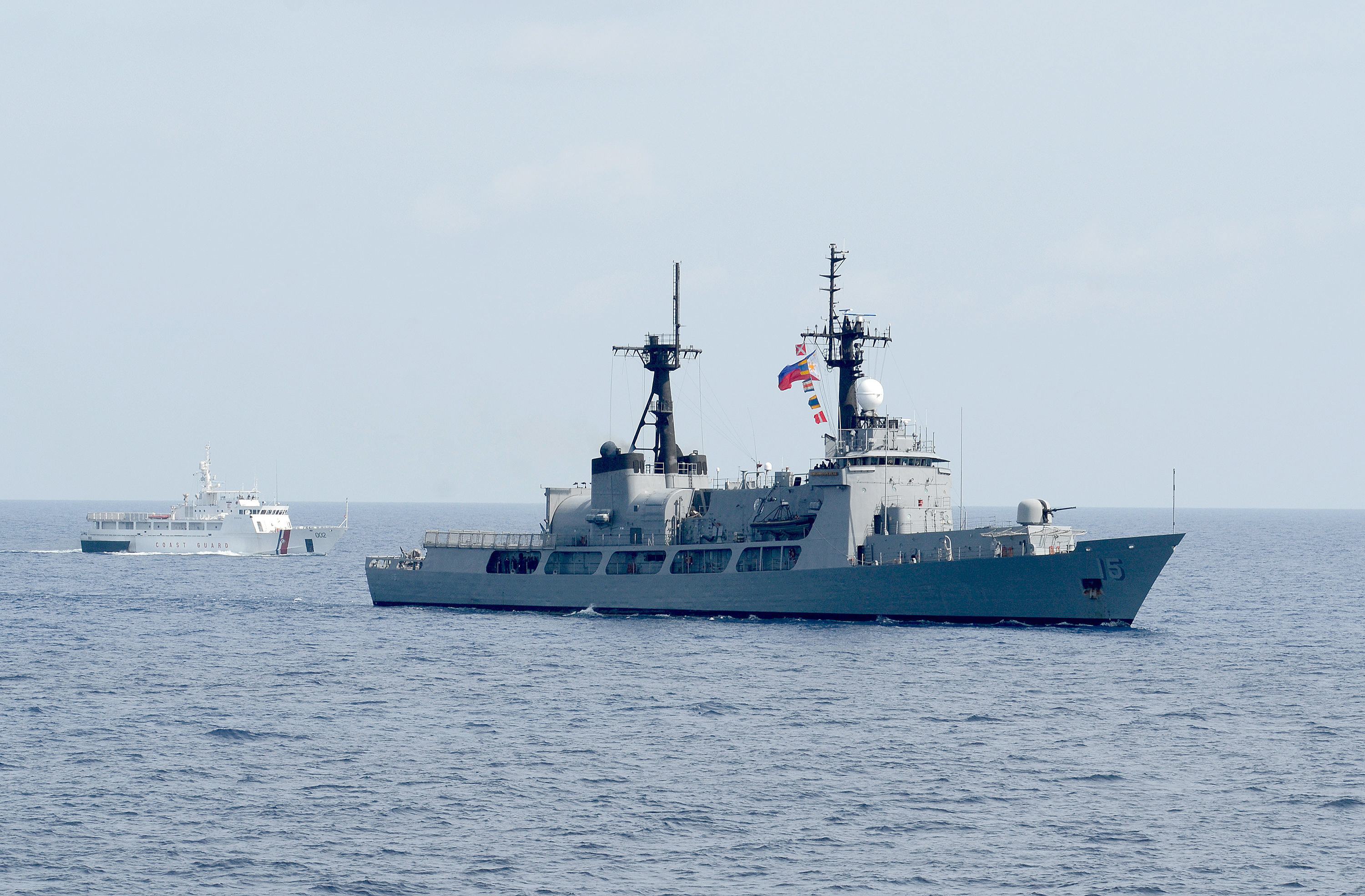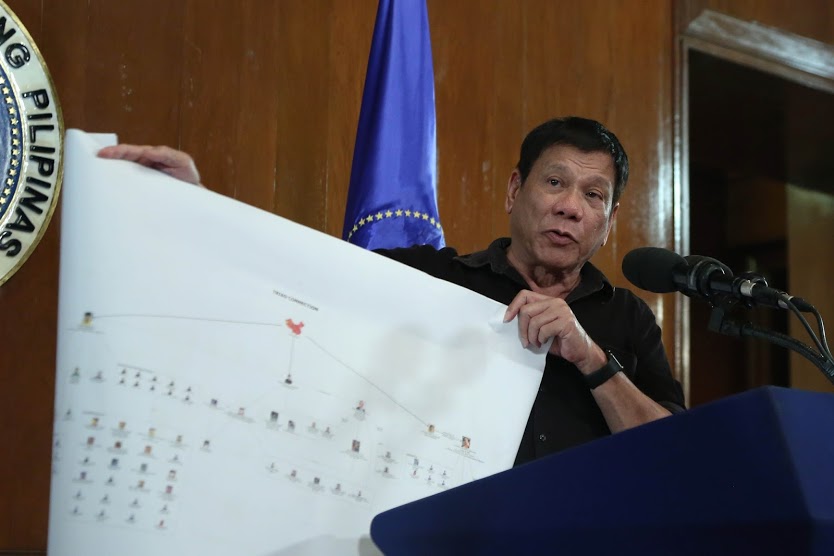Home » Down and Duterte: shakeup in the South China Sea
Down and Duterte: shakeup in the South China Sea

On June 30, Rodrigo Duterte was inaugurated as the 16th President of the Philippines. During Duterte’s nomination and election, most commentators focused on his domestic policy platform and controversial human-rights record as the mayor of Davao. Few people, however, thought to query Duterte’s effect on international relations. In recent weeks, the president has caused consternation among pundits and statesmen alike with a series of speeches, proclamations, and declarations about the Philippines’ regional relations. In these pronouncements, analysts have often reported that Duterte is leaning away from the United States and closer to China.

A NEW DIRECTION
This trend is seemingly illustrated by several recent developments. Duterte has reached out to Beijing, raising the possibility of a Sino-Philippines defence capability acquisition program. He has also made trade and investment overtures to the Chinese government, in the hope that China might play a role in infrastructure investment and economic development in the Philippines.
His rhetoric has also indicated a growing affinity for both Russia and China; he has raised the possibility of “open[ing] alliances” with both powers and stated that the Philippines is at the “point of no return” with the US. Finally, and perhaps most significantly, he has publically hinted at weakening the Philippines’ confrontation with China in the South China Sea, stating “we cannot win that.”
Even as he leans closer to China, Duterte is steering away from the US. On September 12, he announced the upcoming termination of US advisors’ presence in the ongoing struggle against insurgent groups in Mindanao. He also called a halt to further US-Philippines military exercises. Moreover, Duterte has made a number of lurid statements about various public Western figures and governments, most notably when he called President Obama a “son of a whore.”
If the Philippines is reorienting from the US to China, this represents a sharp break with past policy and changes the regional power balance. Ex-president Benigno Aquino III, Duterte’s predecessor, had brought a suit against China to the Permanent Court of Arbitration (a non-UN arbitration tribunal to which 121 states belong). The suit alleged that China’s territorial claims under the “nine-dash line” were invalid, drawing the ire of Beijing.
According to the Chinese government’s nine-dash line claim, the majority of the South China Sea is under the sovereignty of the PRC due to “historic precedent.” Notably, the nine-dash line includes the Scarborough Shoal (a resource-rich atoll) which is within the Philippines’ exclusive economic zone as defined by the United Nations Convention on the Law of the Sea (UNCLOS). In July of 2016, the tribunal ruled in favour of the Philippines, announcing that Chinese claims were “contrary to [UNCLOS] and without legal effect.”

SELF-INTEREST AND HEDGING
However, the ‘pro-Chinese’ narrative may exaggerate Duterte’s policy. As president, Duterte could be acting in the best interests of the Philippines (as he perceives them), rather than adopting an explicitly pro-Chinese stance. Taken as a whole, Duterte’s comments and actions do not reflect anti-U.S. sentiment or pro-China feelings so much as support Filipino self-determination. When he called for the withdrawal of American troops in Mindanao, for instance, he said, “They have to, in Mindanao – there are many white men there… I don’t want a rift with America but they have to go.”
In a similar vein, Duterte’s spat with Barack Obama was a reaction to criticism of the Philippine president’s violent crackdown on drug offenses. “The Philippines is not a vassal state,” said Duterte, “we have long since ceased to be a colony.”
Rather than being pro-China, Duterte could be reorienting Filipino foreign policy towards a “hedging” strategy. Hedging is adopted by smaller states caught in the political machinations of great powers; in the case of the Philippines, the rise of China and the US pivot to Asia. At its core, hedging is the product of strategic uncertainty – as the outcome of an overt US-China struggle for supremacy in East Asia is difficult to determine, the prudent course of action is to avoid explicit alignment. This allows smaller states to walk a middle line between their larger contemporaries’ interests, avoiding the negative repercussions of association with either camp.
Though a US treaty ally, the Philippines is a relatively weak state lying next to a strategic faultline, pressed hard by a rising great power intent on carving out its own power-political sphere in East Asia. Washington is 10,000 kilometres away; there are those in Manila who must doubt America’s commitment to defending the Philippines’ territorial claims. By weakening – but not severing – its ties to the US, President Duterte ameliorates the “China threat.”
Commentators have labelled Duterte crass, vulgar, violent and temperamental. His rhetoric does not mitigate these claims, but few suggest he is stupid. His garish pronouncements and hardline stance on many domestic issues belie the fact that he is carefully picking his way through a strategic minefield with many potential outcomes for the Philippines, few of them positive. His decision to put some space between Manila and Washington may not be motivated by any great love for Beijing, but instead propelled by Philippine nationalism and self-determination.

